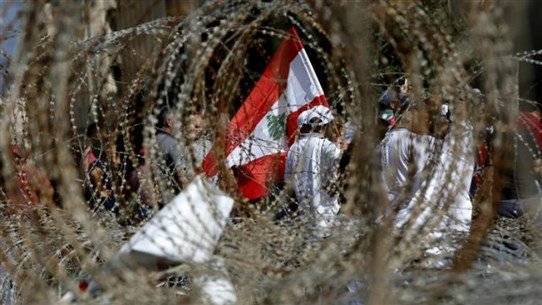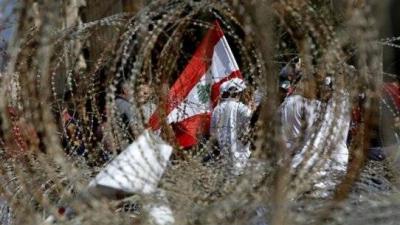Lebanon, both officially and politically, is ignoring all warnings that have reached it through Western delegations and diplomats working in Beirut, stressing the need to seize the current opportunity before global powers become preoccupied with their own issues and international problems that are now at stake. Meanwhile, numerous internal crises accumulate on Lebanon's table, all of which are cause for concern about the future of its citizens, ranging from economic crises related to electricity, flour, and medicine, to escalating security instability, judicial issues, strikes in the public sector and at the Lebanese University, and challenges within security institutions. There are also political crises stemming from the stalled formation of a government and fears of disrupting the presidential elections.
Political analysts view the internal Lebanese situation through the lens of regional and international complexities between the events of the Jeddah Summit and the Tehran Summit. Some are cautious that Lebanon may have entered a phase similar to that of the 1970s, which would indicate a prolonged stagnation of its crises. The fierce rivalry between two opposing camps at that time escalated into the outbreak of the 1975 war, with significant differences in internal, economic, living, and social conditions between the two eras. Historical examples from that war illustrate how competing forces pushed Lebanon through multiple phases of internal confrontations that gradually accumulated, ultimately leading to its current state, particularly following developments in 2005. There is increased concern among Hezbollah's opponents that the party's actions, particularly following the recent marches and the speech of its Secretary-General, Sayyed Hassan Nasrallah, may signify the initial signs of definitively closing a chapter on internal settlements, especially in light of the new regional context.
When the Russian-Ukrainian war erupted, Lebanon was preoccupied with the implications of aligning with either pro-Russian or pro-Ukrainian camps, neglecting both the wheat crisis and the global fuel crisis, and it didn't genuinely consider how developments in the war and the shift in Europe and the United States could render Lebanon a secondary issue. The Jeddah Summit, coupled with U.S. President Joe Biden’s visit to Israel, opened eyes to new realities that could establish a different trajectory from what the region experienced after the diminished American presence, while simultaneously reviving Saudi Arabia's role. All strategic Western reports are re-reading this phase in a manner distinct from recent years, presenting rising possibilities of both small and large-scale wars. In contrast, the Tehran Summit seeks to revive a balance between two blocs, which will be under international and regional observation until the effects of this balance of power become clear.
What concerns us, from a Lebanese perspective, is that the opportunity Western diplomats want Lebanon to seize may be on the verge of being lost, as first-tier leaders become absorbed in more urgent issues, causing Lebanon to shift to less influential degrees and circles. Lebanon, however, shows no real interest in the outcomes of the Jeddah and Tehran summits, aside from each faction welcoming the results through its political positioning. While Lebanon managed to proceed with its parliamentary elections following the Russian-Ukrainian war, this was not due to any responsiveness to external pressures or insistences on election timelines. Rather, the holding of parliamentary elections and the formation of a new Parliament set the stage for a reality of governmental and presidential vacancy. This means that the timing of these summits, occurring during Lebanon's government formation and presidential elections, would sharply and directly impact both issues.
However, warnings are not limited to these two events, separate from a range of other challenges, whether concerning gas issues and maritime demarcation, reforms, recovery planning, negotiations with the International Monetary Fund, or initial efforts to address the economic and financial situation. Thus, the insistence on holding presidential elections is not merely a symbolic issue, but rather, whether they occur or not will be one of the indicators reflecting the trajectory of the new balance of power in the region and the world.
Despite the potential dangers this situation poses to the internal reality, political forces and the official authority completely disregard Western warnings regarding the necessity of exploiting the current minimal international and regional interest to at least address the critical issues at hand. This disregard is reinforced by two factors: the neglect of basic responsibilities in resolving crises, especially those that affect daily life, turning them into ready fuses for any internal spark. Secondly, there is the tendency to create and invent new internal crises, which are unnecessary and compound the causes of internal collapse, alongside external risks. This has led to capitals that are less entrenched in the international axis conflict, while maintaining a balanced relationship with Lebanese forces, providing advice that aligns with the need to neutralize Lebanon and find immediate solutions that would allow for the continuation of the post-parliamentary election phase, maritime demarcation, and gas extraction. However, it is clear that "Western" advice, regardless of whether it comes from European or American sources, continues to yield the same outcome, as the key messages from the Jeddah and Tehran summits have not yet reached the relevant parties.




